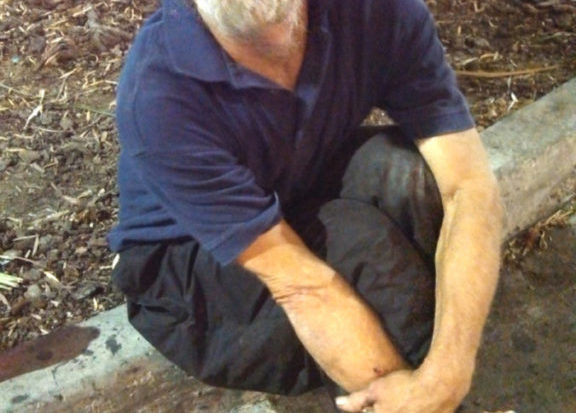
 By Leonard Adame
By Leonard Adame
All animals are equal, but some animals are more equal than others.– George Orwell
So what is hard work? Typing all day? Naah. Most offices are air conditioned. Selling in a mall? Again, the air conditioning makes the difference though it is torturous dealing with people who think salespeople are their personal slaves. How about waiting tables? Can be hard, messy, sweaty, pressured having to deal with people who can barely read the menu or can’t find bathrooms or want you to take back an order because they changed their minds, not to mention the kids who leave a layer of crumbs and poop on the floor while their parents keep on yapping and complaining about their hard lives. Maybe fixing cars can rank up there as a hard job. But more and more these days, the mechanic shops are cleaner than restaurants and hotel lobbies.
No, the hardest jobs for my dinero is working in hell, otherwise known as picking grapes, melons or loading bobtail trucks with flats of tomatoes. Picking cherry tomatoes may be the worst. The vines are tall, the irrigation row between them narrow and the humidity is as bad as a jungle.

Truth is all jobs in the fields are torturous. People die out there from pesticides and heat stroke even as the bosses deny culpability. Tractors and other machinery often kill and maim people. And maybe the worst is that bosses don’t care much about your injuries or your health in general. They wander up and down the rows, their presence silently pressuring people to work even faster than they are.
So Labor Day is coming—a time to celebrate the efforts of hardworking people. When that holiday is mentioned, people tend to think of factory workers, dock workers, miners (maybe), truckers and government workers. Rarely does anyone think about farm laborers. They are invisible, they are dispensable, they are not counted, literally. They have little or no voice, can’t file grievances or complain in general and have no way of
asserting workers’ rights. When people look at farmworkers, and I worked as a farmworker years ago, they see a tool, something that’s a necessary evil, creatures with dirt on their clothes and hands who shouldn’t be in a food market, who should stay out of sight, who should speak English.
This isn’t the case with one worker I ran into in front of a big local super market. Troy is a White man, a person who worked for a bank, made good money, married the love of his life and had children. He lived in New York, had good housing, a car, some money and generally a good life that many Americans take for granted.
He had a “hell of time” getting to marry his fiancé because she was Japanese. In fact, he met her in Japan. But things didn’t go well at first. Her father wanted no part of him. But soon he realized that his daughter was happy only with Troy, so he gave his blessing and they were married. Then Troy’s wife died, leaving him with children, who moved to Japan, leaving him here. His life fell apart: lost his job, his car, his home and began traveling around the country, to San Francisco and then Fresno.
Now Troy collects food carts for the market. He’s become a fixture as he sits on the curb under the skimpy tree. He’s gotten to know the customers, who often give him bananas or change, who often call him by his name to say hello. Even the market’s employees know and seem to like Troy, acknowledging his help.
Next to him sometimes a lady sells tamales. They are both patient. Troy often spends the entire day in front of the market, trolling for change, saying, “trying to get enough to get something to eat.” At the same time, the lady sings, “Tamales! Tamales! Diez dolares a la dozena. Hechos de pollo o puerco. Tamales! Tamales, calientitos y deliciosos.” Troy as the tamale lady sings runs for another few carts, parks them by the store’s entrance. Employees watch him work. He sweats profusely, pushes the heavy carts until they’re in a row as neat as army jeeps.
Who will acknowledge Troy’s labor, for which he doesn’t get paid? Who will tell him he’s appreciated, that his work is exemplary? Some people do hand him a few cents, but most seem not to hear his plea: “Can you spare a little change?” People walk by as if he were a building fixture, as if he didn’t deserve to be addressed with even a hello or how are you doing? But as we pass him, we know how he’s doing: hungry, in need of a shower, in need of conversation (he talked with me for a half an hour), in need of being recognized as a human being—and as a worker.
No one works as hard as farmworkers, or as hard as Troy, or the tamale lady. In return, they become targets of indifference, targets of hatred often (people call him a bum or worse). The tamale lady fares a little better, but even she is ignored as people pass her with carts overflowing with food.
It seems there’s some kind of requirement to be appreciated as a worker, especially on Labor Day. I guess working for practically nothing for hours and hours doesn’t count.
A lot is said about the value of hard work and how Americans are good at working to build lives for themselves. But farmworkers and people like Troy and the tamale lady won’t see those benefits: good salaries, buying homes and cars, living in a community that accepts them. Nope. That stuff ain’t for them.
I guess some people deserve respect and decent jobs some don’t.
*****
Leonard Adame has retired from teaching college English. He now plays drums in various bands, takes photographs, reads mystery novels to a fault and has published poetry in college anthologies. He most enjoys re-learning about human beings from his grandkids. Contact him at giganteescritor@hotmail.com.
